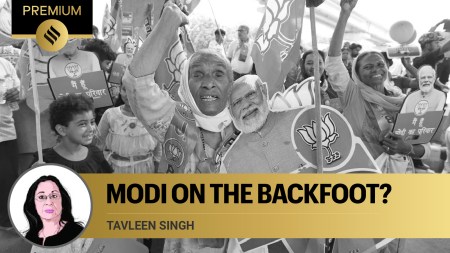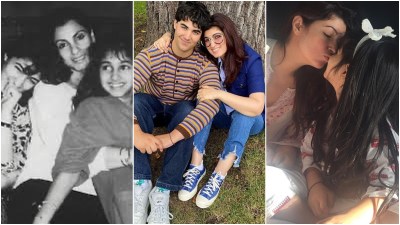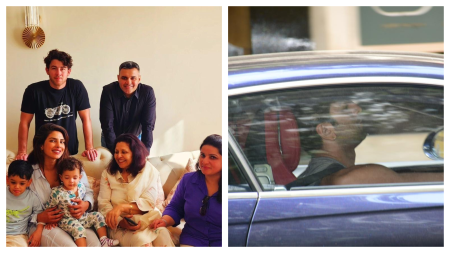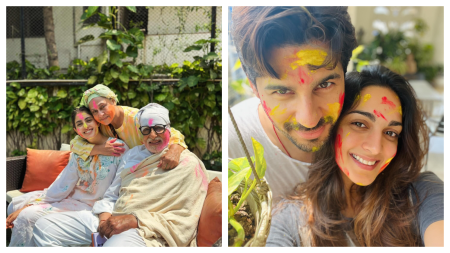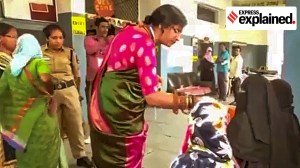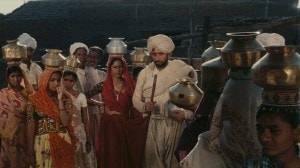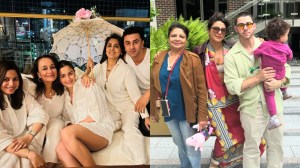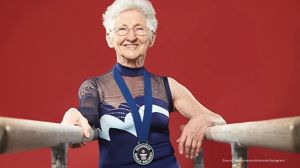- India
- International
‘Ma will be angry if I don’t get on with life with a laugh’
Odissi dancer Kiran Segal pays a tribute to her flamboyant mother Zohra, who passed away recently.
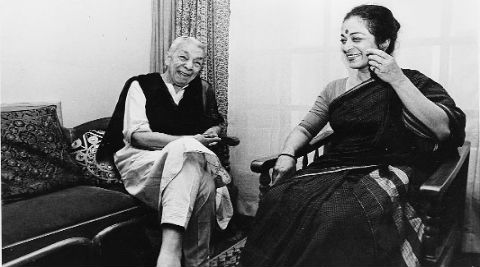 Kiran Segal with her mother Zohra.
Kiran Segal with her mother Zohra.
When the spotlight is turned on them, some artistes turn shy while others deal with it with a smile, but my mother was her own act — she would soak up all the attention and let it rip. She enjoyed people noticing her. As her daughter, I often forgot this. Once, we went out and met a lot of my friends. When we came back, I said, “What a lovely time we had” and she shot back, “What was lovely about it? Mera toh kisi ne notice hi nahi liya (nobody took any notice of me)”. This was in the 1990s, when she had just come back from England and nobody recognised her on the streets. She was Kiran Segal’s mother and, knowing her, I am absolutely sure that she did not like it at all. She was happiest at the centre of attention.
I was the eldest child of Kameshwar and Zohra Segal. She was a Muslim and he, a Hindu. She was adventurous and he was eight years younger to her. What mattered was that they both had a great sense of humour that I got as a gift. Everybody knows that Zohra was great fun; what is less known is
that she was also a strict disciplinarian. She was a working mum; she didn’t have time to stay at home and cook for us. So, my brother (Pavan Sehgal) and I were disciplined from an early age, be it about sleeping in the afternoon chahey neend aaye ya na aaye (whether you were sleepy or not) or toilet training, though she wasn’t very concerned about studies. Looking back, I realise that my mother hit my brother when he was naughty but never raised a finger on me.
Ma’s work and my life were divided between Bombay, where we grew up, and England, when she was trying to break into theatre and films when I was around 18 or 19. In Bombay, Prithvi Theatre was second home. My mother had trained in eurythmics in Dresden, Germany, and had worked extensively with Uday Shankar’s dance troupe before becoming director of dance at Prithvi. My childhood was filled with singing and dancing. This was the time Ma started getting small acting roles and then main roles, though it was her sister Uzra Butt who was the lead actor at Prithvi. We travelled through the country with performances and I have acted in more than 100 productions as a child artiste, never realising that there was anything extraordinary about acting and dancing in front of people.
In England, we lived in a small apartment and Ma took up various odd jobs to see us through till — as actors say — the Big Break happened. She would repair curtains at a small shop, work as a manager at India Tea Centre on Oxford Street, choreograph small pieces and go on lecture-demonstrations. Many other Indian actors were doing the same, working backstage in theatre and washing dishes, among other things, and they would get together to share experiences and gossip. Never mind, how hard the times, Ma always looked ahead with a smile. It isn’t well known that Zohra actually became famous in England before Bollywood happened. Her turning point was a TV show called Padosi in the 1970s and her letters to me during that time were full of excitement and joy. She also acted in Bhaji on the Beach, Tandoori Nights and Jewel in the Crown — all lovely shows that people remember to this day.
I gave my mother hell, of course. Throughout my adolescence, I did wild things like staying out late, going to discotheques and hanging out with whoever I wanted. My father had died when I had just hit my teens. My mother, who brought us up single-handedly after that, did not always approve of my activities but she kept quiet, especially when I left my first husband, a Swiss man with whom I have a daughter. She liked him a lot. I left England and came back to India to pursue dance and married again. She did not like my second husband but, once again, she said nothing. In hindsight, I feel that was the smartest way to deal with me. If there’s one thing Ma always spoke up about was my clothes. “How badly you dress, all those bright colours. Look at me, mera kitna Sufiana taste hai (I have a Sufi sense of fashion),” she would say, and I would retort, “Your taste is rubbish”. Oh yes, she could be horrible.

If there was something that saddened her towards the end of her life, it was how her request for a ground floor apartment was not being met. She had been writing to the Lieutenant-Governor of Delhi, the chief minister and the Sangeet Natak Akademi since 2011, explaining how age made it near
impossible for her to climb up to the top floor of our building. All her life, she had never asked for a favour but in her last days, she felt like a prisoner. Every day, she would have to be carried out to the verandah for half an hour in the sun. After her funeral, we got many condolence letters from important people written in bureaucratic language, telling us how great she was. But, dil khatta ho gaya hai (we feel bitter). They don’t need to tell us she was great, we know it. When she needed help, nobody stepped forward.
After her death, I have been receiving a lot of messages. It is amazing that a large number of people are talking about the Christmas cards that she would hand-paint and send. Now, people tell me how much these cards from “Zora” meant to them. That’s right “Zora”. That’s what she was called in England and right till the time she died, I would tease her and say, “You have been born in India by mistake. You are Zora, not Zohra.” Christmas was one of the many big celebrations in our house. Another was birthdays.
Ma was a big one for parties. A birthday was never complete without a bash with lots of people and cake. Once, I took her out to a fancy place but she didn’t seem to enjoy herself. “Kya birthday, cake toh hai hi nahi! (What birthday, there is no cake),” she grumbled. I rushed down to a pastry shop, ordered a cake, had birthday wishes written on it and got it delivered to her immediately. “Ab lagta hai jaisa mera birthday hai (Now, it seems like a birthday),” she said with a satisfied grin. She was in her nineties at the time. A few days ago, she told me, “When I die, have a big party. Get lots of drinks, make lots of shor (noise). Don’t let there be any rona dhona (crying). And don’t ever stop working.” Of course, a person whose mother has died will cry every now and then, until time passes and only memories remain, but I am also afraid that Ma is watching and she’ll be angry if I don’t get on with my life with a laugh.
As told to Dipanita Nath
Click for more updates and latest Bollywood news along with Entertainment updates. Also get latest news and top headlines from India and around the world at The Indian Express.
May 13: Latest News
- 01
- 02
- 03
- 04
- 05


